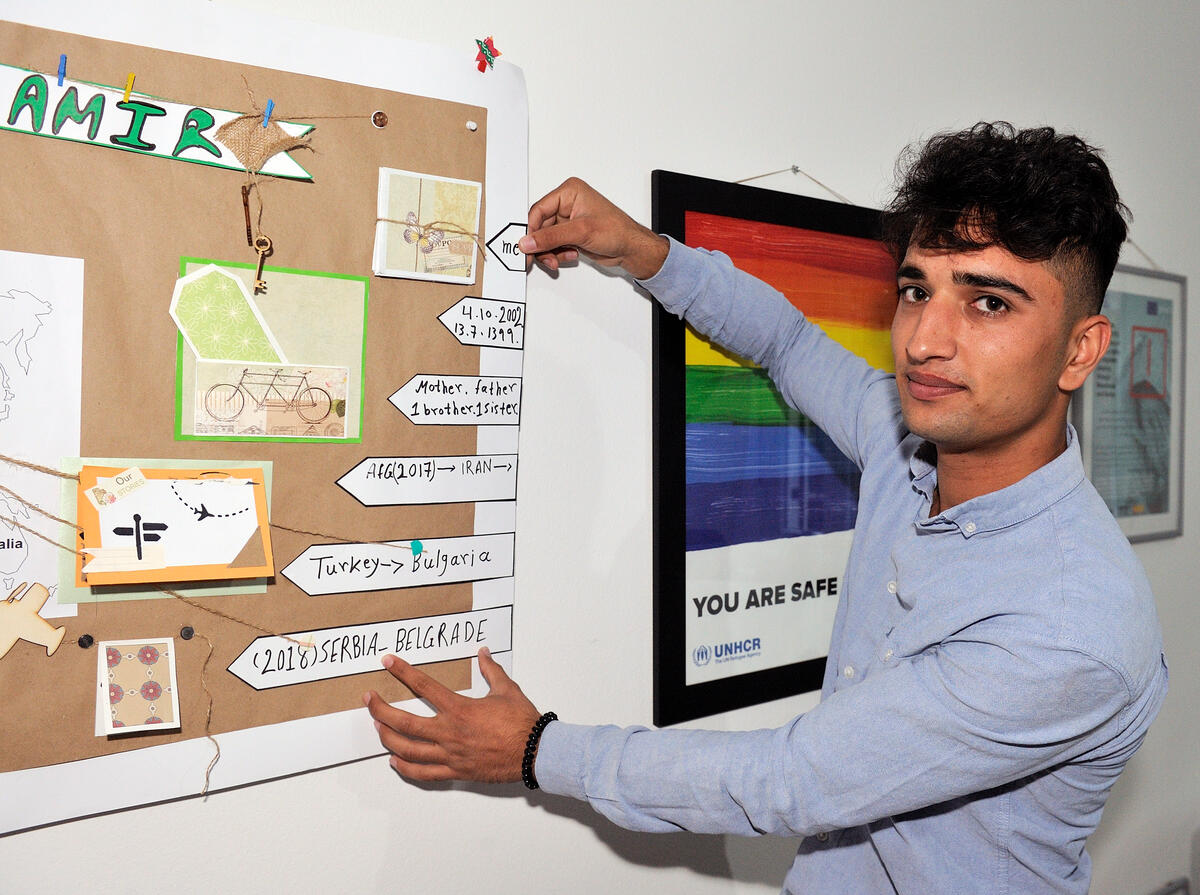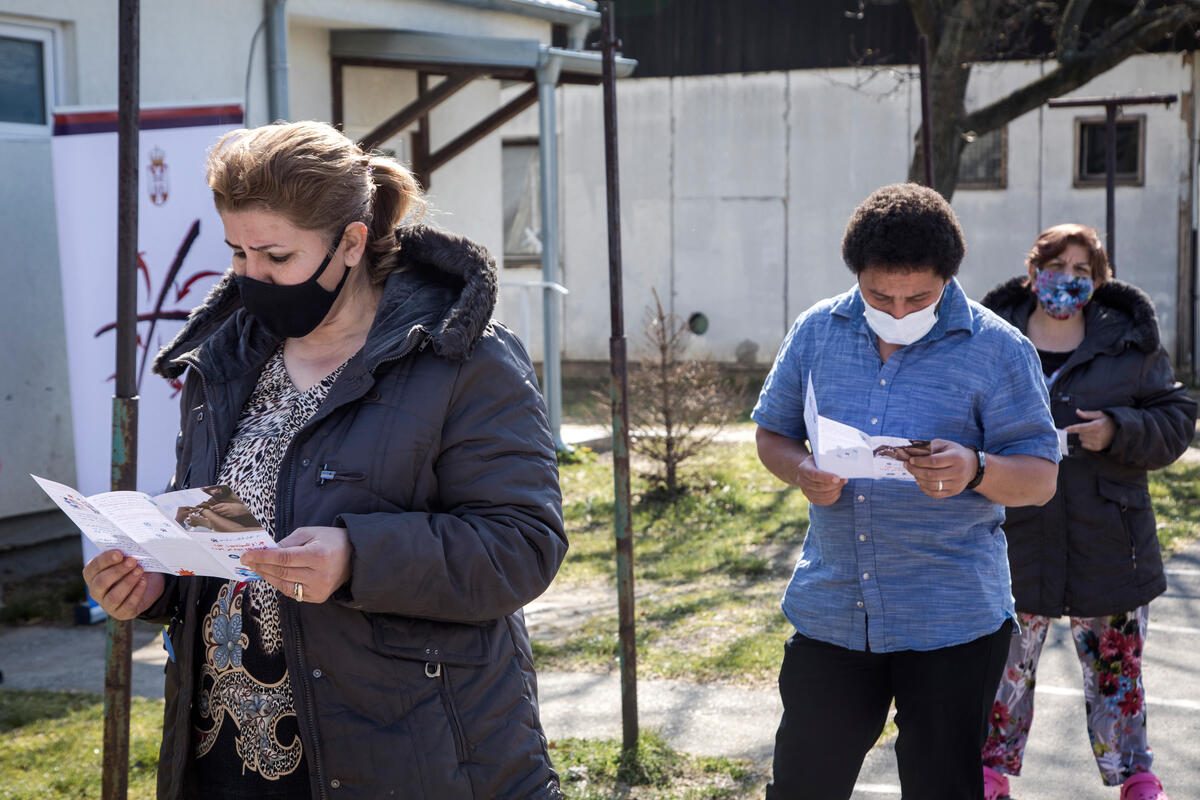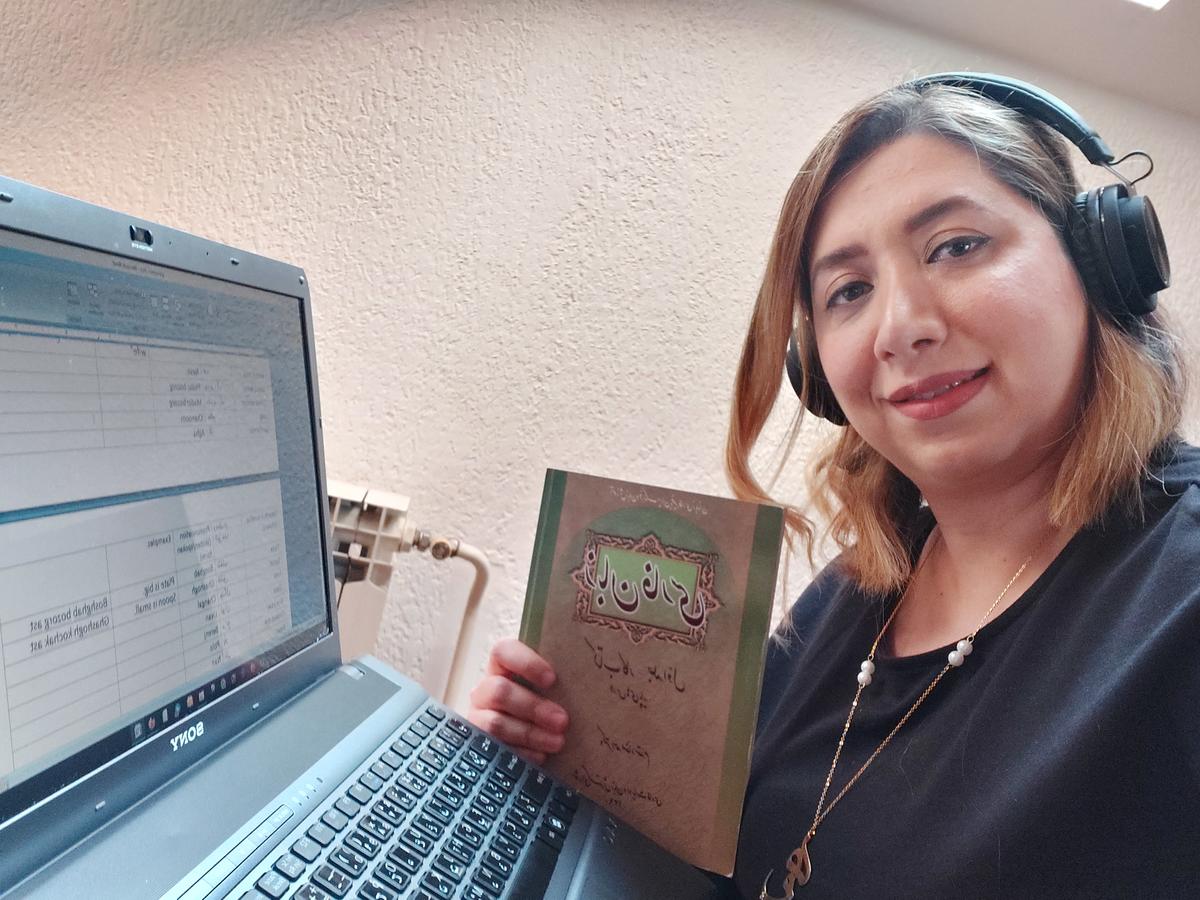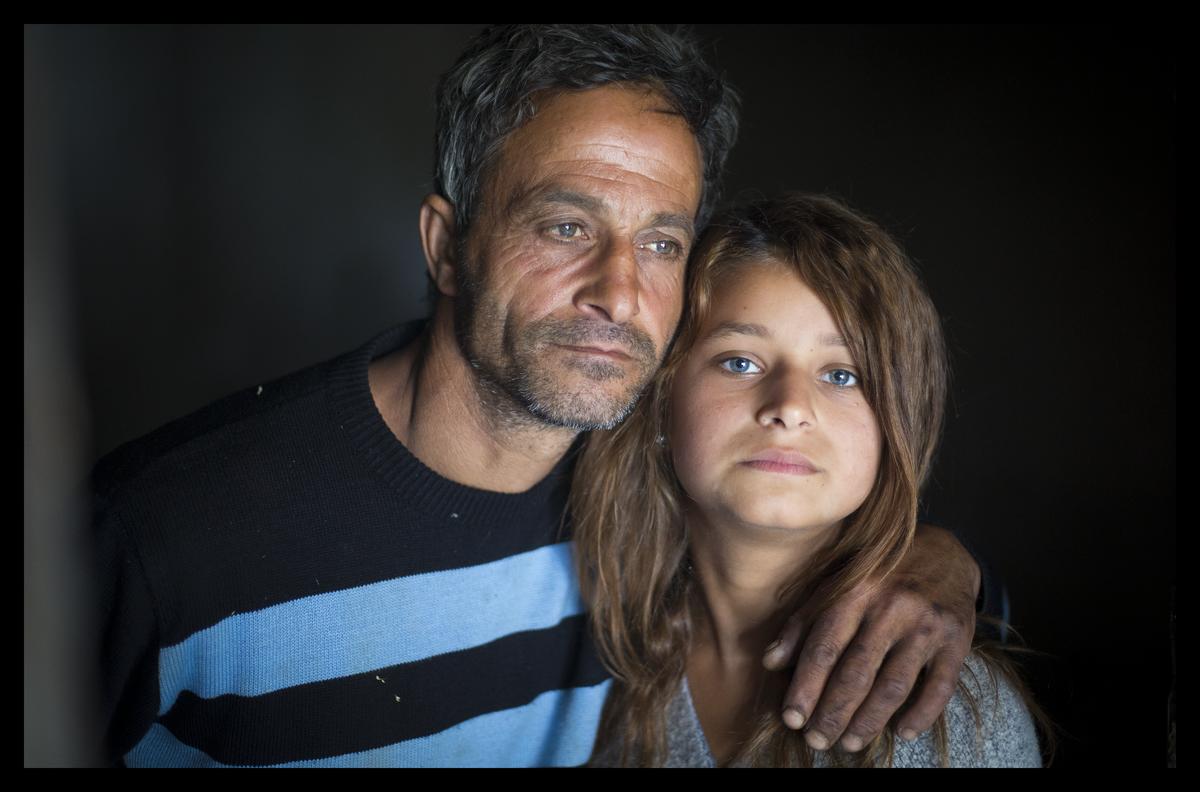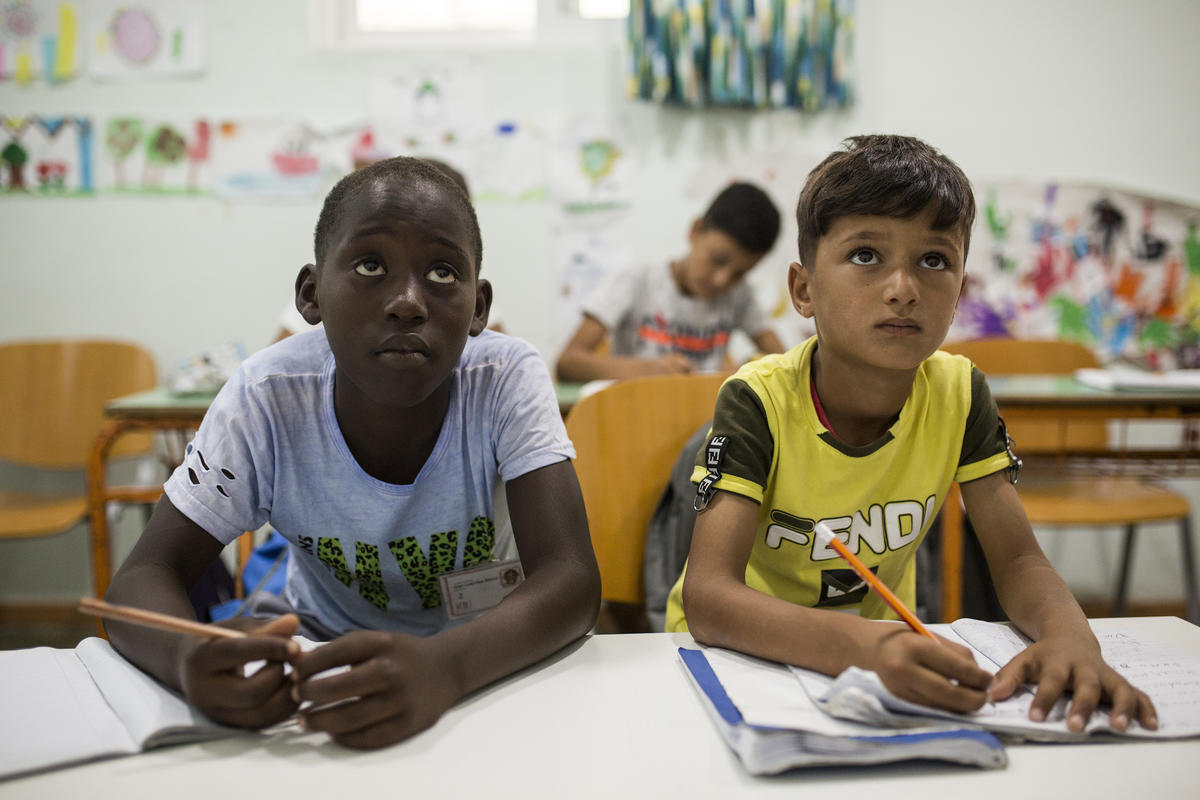Kosovo Crisis Update
Kosovo Crisis Update
High Commissioner's Visit
High Commissioner Sadako Ogata Monday led a convoy of 190 refugees who returned home from camps in the FYR of Macedonia at the start of a two-day trip to Kosovo - her fourth since last year and the first since UNHCR resumed operations there three weeks ago.
Ogata, who arrived in Skopje Sunday, went to Stenkovec 2 camp early Monday morning and then travelled with the caravan of seven UNHCR/IOM buses and a truckload of relief supplies. Fifty-four of the refugees went to Urosevac and the rest proceeded to Pristina, the Kosovo province capital.
In the afternoon, Mrs. Ogata will conduct an aerial survey of areas in central and western Kosovo which were severely damaged during the war. She will stop at Prizren and Pec - two of seven offices UNHCR has opened since it returned to Kosovo on 13 June - where she will meet with commanders of KFOR, the international security force in Kosovo, returnees and displaced people.
In a move emblematic of UNHCR's commitment to fostering ethnic harmony in Kosovo, Ogata will visit a group of Serb civilians who have sought safety at an Orthodox monastery in Prizren.
She will later proceed to Pec - a cosmopolitan town in Kosovo that was home to 68,000 people before the war. About half of the city has been destroyed during the fighting.
In the evening, the High Commissioner will meet with Sergio Vieira de Mello, the UN Secretary-General's Acting Special Representative in charge of United Nations operations in Kosovo, and representatives of other UN agencies and the Organization for Security and Cooperation in Europe.
On Tuesday, Ogata will hold discussions with General Mike Jackson, the KFOR commander, and make a brief stop at Urosevac, a major returnee area 30 kilometres south of Pristina, on her way to Skopje en route back to Geneva.
Demining
Efforts to clean up land mines and unexploded ordnance go into high gear this week with the fielding of teams from the UN and NGOs in central and western Kosovo.
Seven teams from the German agency HELP are now working in Pristina, Urosevac and Gnjilane while HALO Trust specialists are conducting a rapid survey of potential land mine sites in the first phase of the UN mine action programme in Kosovo.
Experts with field experience in Cambodia and Mozambique are joining the teams that will fan out beginning this week as activities expand. A group of 30 Cambodians working for the Mines Advisory Group will head for Pec. The Norwegian Peoples Aid will dispatch one team of 30 members from Bosnia to cover Prizren and Suva Reka. Handicap International is fielding two dog teams in Djakovica.
Other teams are preparing to move out, depending on the results of the rapid assessment survey, include those from BACTEC International, European Landmine Solutions, DSL, Danish Church Aid, the Swedish Rescue Service Agency, Mine Tech of Mozambique, RONCO and Intersos.
Priority areas are Pristina, Urosevac, Prizren, Suva Reka, Djakovica, Pec, Podujevo, Kosovska Mitrovica, Gnjilane and Glogovac.
During the current emergency phase, mine clearance will be undertaken in support of UNHCR's return plan, humanitarian emergencies resulting from the spontaneous return of refugees, access to remote villages and restoration and provision of essential community infrastructure or shelter programmes.
FYR of Macedonia
As thousands of refugees continued to head home daily, two more camps have closed down, including Stenkovec 1, largest of seven tented sites in the FYR of Macedonia, and Bojane.
As of 16 June, when the spontaneous return movements started, Stenkovec 1 had a registered population of around 18,000, while Bojane held over 3,000. Radusa camp was closed last week. The remaining four camps, plus the Radusa Collective Centre, remain open with around 12,200 refugees.
Around 16,300 refugees returned from the FYR of Macedonia to Kosovo over the past three days (July 2-4), bringing the total returns from that country to just under 200,000. Around 22,600 Kosovar refugees remain in the FYR of Macedonia.
UNHCR's supply pipeline from Skopje to Kosovo continues uninterrupted. On 3 July, 12 trucks ferried mattresses and tents directly to regional distribution points in Kosovo. Two trucks went to Urosevac, four to Djakovica, three to Pec and three to Pristina.
On Sunday, UNHCR dispatched 18 trucks from Skopje to Kosovo carrying tents, plastic sheeting, kitchen sets, roofing materials, foam, mattresses, hygienic parcels and blankets. Eight trucks went to Pristina, two to Urosevac, three to Djakovica and five to Prizren.
Albania
By bus, truck, train and helicopter, hundreds of refugees went home from Albania to Kosovo with help from the Albanian government, UNHCR, other UN agencies and NGOs and the international security force in both Albania and Kosovo over the weekend, while spontaneous returns continued as well.
During the last three days, July 2-4, 39,200 refugees went back - most on their own - from Albania to Kosovo, bringing the overall total since 15 June to 339,700. Refugees joining organized repatriations from Albania, which began three days ago, have reached a total of 1,782 - 527 Friday, 642 Saturday and 613 Sunday. Final destinations were Prizren, Pristina and Urosevac. Most of the returnees came from central and southern Albania, where they boarded trains for the railhead at Mjeda outside Shkodra. There, they were picked up by buses and trucks for the northern border town of Kukes. Others came by bus from camps in the interior to Kukes.
Chinook helicopters on Saturday began shuttling refugees between Korce in south-eastern Albania and Kukes in the north-east for a bus ride to destinations in Kosovo. A total of 236 refugees were airlifted from Korce on Saturday and 233 on Sunday.
Meanwhile, UNHCR has completed the rehabilitation of 32 collective centres in nine prefectures in Albania. The centres can accommodate up to 18,000 people and will be used if needed to accommodate refugees who may choose to remain in Albania. The project is part of UNHCR's overall rehabilitation effort in Albania to ease the impact of the presence of refugees there.
Republic of Montenegro
Around 7,200 Kosovars returned from Montenegro to Kosovo over the past three days - 2,900 on Friday, 2,800 Saturday and 1,500 Sunday. So far, 46,800 Kosovars have returned home since late June. As in Albania and the FYR of Macedonia, the returnees went home in their own vehicles, or rented taxis and buses.
Several hundred Montenegrin and Kosovo Serbs and Roma (Gypsies) entered Montenegro over the weekend. Around 21,900 arrivals from these groups have been reported in Montenegro since last month. An estimated 8,800 of them have proceeded to Serbia proper.




